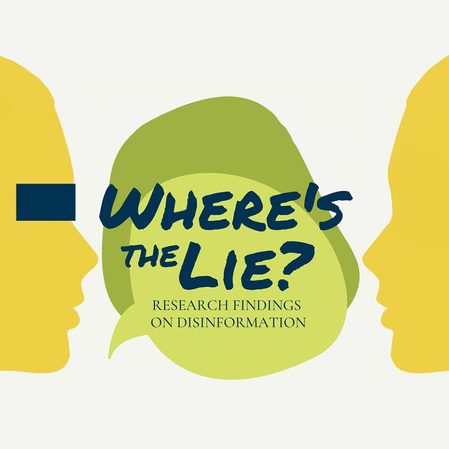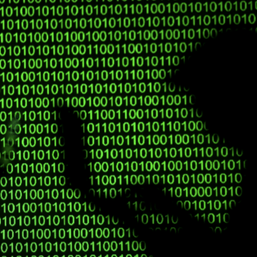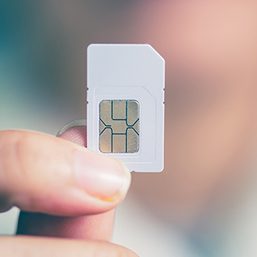SUMMARY
This is AI generated summarization, which may have errors. For context, always refer to the full article.
![[ANALYSIS] A counter-disinformation strategy for the Philippines?](https://www.rappler.com/tachyon/2021/02/imho-counter-disinformation-1280.jpg)
It is high time for Philippine policymakers and defense and security planners to recognize disinformation as an act of aggression and a national security threat.
Disinformation’s mechanism of action is to destroy trust in state authorities, institutions, and civil society, paralyzing the country and leaving it unable to act against other security challenges. In short, disinformation destroys the country from within.
Notably, China has used disinformation, sharp power, and wolf warrior diplomacy to promote questionable COVID-19 vaccines and downplay the South China Sea dispute in the Philippines. It has used dubious narratives in government statements, mass media, and social media to exploit political, economic, social, and cultural divisions within the Philippines, rendering the latter unable to respond to Chinese advances in the West Philippine Sea due to a confounded internal situation.
Further, the Philippines was allegedly the patient zero of contemporary disinformation operations, as a sophisticated disinformation operation on mass and social media were instrumental in the victory of President Rodrigo Duterte in the 2016 Philippine presidential elections. These practices that were first tested in the Philippines would eventually be applied on a larger scale to the 2016 US presidential elections, resulting in the election of President Donald Trump. Consequently, both countries suffered self-inflicted security, foreign, and domestic policy reverses from decisions at the highest level of government.
That said, the Philippines must recognize disinformation as an act of aggression, a national security threat, and take appropriate countermeasures to address it. While there is some legislation touching on the subject, such as the Cybercrime Prevention Act of 2012, which penalizes online disinformation as libel; the Electronic Commerce Act of 2000, which aims to secure the country’s information and communications technology (ICT) infrastructure for economic and government purposes; and the Data Privacy Act of 2012, which mandates the security, privacy, and protection of government and private information in ICT systems.
However, these laws do not address disinformation as a strategic-level threat to national security. Further, there is a pending Anti-False Content Act filed in Senate; however, there are concerns about its constitutionality with regard to freedom of speech. Moreover, the 2017 National Security Policy and 2018 National Security Strategy are silent about the matter, making no mention of how to address disinformation as a threat to national security. Despite lacking legislation and policies addressing disinformation as such, the Philippines can still do some countermeasures to mitigate its impact.
Narratives are central to disinformation, as it shapes perceptions by forwarding false narratives aimed at sowing doubt and dissension. As a result, there is a clash of narratives in a contested cognitive space, which inevitably affects the information, social, and physical domains. One of the weaknesses of spurious narratives used in disinformation is their intellectual and philosophical poverty: they are not grounded on any strong concepts or enduring truths. Instead, they rely on obscurity, the denial of the disadvantaged and marginalized, and outright lies to persist and remain relevant.
In contrast, US President Joe Biden, in his inaugural address, enumerated the core concepts and values that define his country — opportunity, security, liberty, dignity, respect, honor, and truth. By the same token, the Philippines is faced with the intellectual task of coming up with its own national narrative based on its own enduring concepts and values that define its worldview and provides a long-term vision of what the country should aspire to be.
Legislation that addresses disinformation as an act of aggression and national security threat must be enacted, one that may be expected to call for retaliatory measures against state and non-state actors who are engaged in disinformation against the Philippines and mandated to create a counter-disinformation council. This council would be expected to employ proactive measures to preempt and debunk spurious narratives. It would employ both official government channels and collaborate with civil society in a whole-of-nation approach to provide correct information to preempt disinformation, effectively immunizing civil society, institutions, and core national decision-making processes from disinformation and debunking false narratives wherever they take root.
Disinformation as a shared threat can be incorporated into the Philippines-US alliance. Some of the criticisms leveled at the 1951 Philippines-US Mutual Defense Treaty (1951 MDT) is that it was created with the Cold War in mind, and is not responsive to new and emerging security challenges. However, one way to save this alliance is to frame disinformation as a common threat to the US and the Philippines, broadening the scope of the 1951 MDT from traditional physical domains of warfare into the cognitive domain. As democracy is founded on informed decision-making, disinformation poses a threat to its viability. Given that the Philippines and the US share democratic values, both can expand their security cooperation to cover this emerging challenge. Revitalizing the promotion of human rights and good governance as shared democratic values can be a starting point for Philippines-US joint counter-disinformation efforts.
Crafting a national counter-disinformation strategy has its own set of challenges. First, there is the challenge of creating a national narrative from a diverse Philippine population and protecting the said narrative from being hijacked by self-serving elite interests. Second, it would be exceedingly difficult to change the state’s security appreciation of disinformation if its top officials are its beneficiaries and employ it with gusto. Third, the present state of civil society in the Philippines leaves much to be desired. With political opposition leaders and activists red-tagged, the Catholic Church discredited, media outlets critical of the government closed or bullied, and academic freedom in universities threatened, a climate of fear and distrust exists between Philippine civil society and the state, precluding a whole-of nation approach against disinformation.
Despite these challenges, disinformation operations unravel as more factual evidence is presented against its spurious narratives. That said, strong and enduring values along with fact-finding and critical thinking are ever more important in order to see through conflicting narratives, and sift deception from truth and disinformation from national interests. – Rappler.com
Gabriel Honrada is an international relations graduate student at the People’s Friendship University of Russia under the Russian government scholarship. His research focuses on Indo-Pacific military affairs and Russia in the Indo-Pacific.
This piece was originally published on Analyzing War.
Add a comment
How does this make you feel?






There are no comments yet. Add your comment to start the conversation.